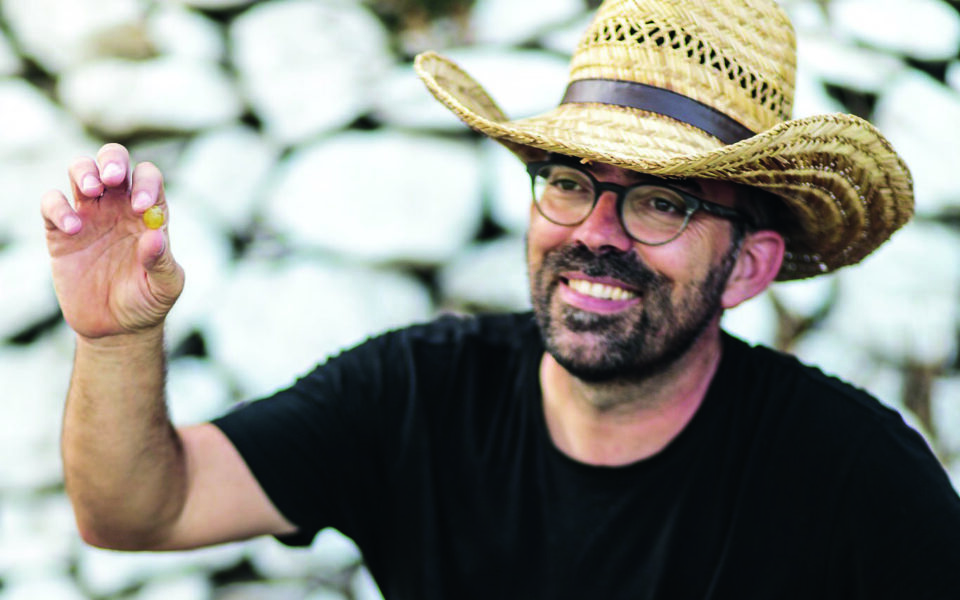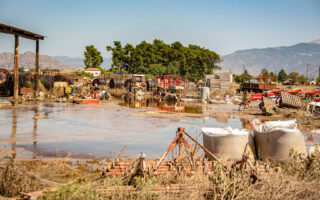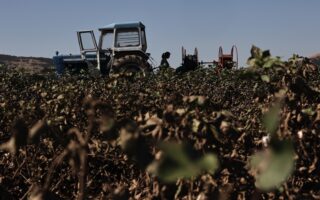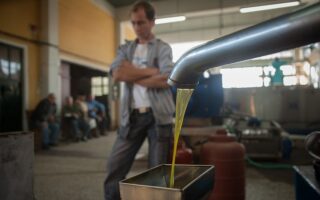Fine wine from the old varieties of Naxos

A unique wine produced from vineyards on the Cycladic island of Naxos that will be sold for 550 euros per bottle is expected to be released within the next month. The bottles, numbering only 1,050, will be distributed by hand to people who have a special interest in wine – and of course who can pay the steep price.
Is it a challenge that concerns a few? It is probably more of an experiment that costs money but could change a lot of what we know about wine.
The creator of this new wine is Loic Pasquet, the famed Bordeaux winemaker and oenologist who makes the most expensive wine in the world, Liber Pater, a bottle of which costs about 30,000 euros. In addition to being an imaginative winemaker, Pasquet is a pioneer of the movement that promotes the production of wine from autochthonous grape varieties which existed before phylloxera, the disease that wiped out the European vineyard in the 19th century.
The “wine plague,” as the phylloxera epidemic has come to be called, affected most of the vineyards of Europe – and the rest of the world – in the period 1860-1890. To restore their vineyards, a lot of winemakers looked for clean plants, which were created by grafting cultivars onto disease-resistant American rootstocks. The vineyards secured their health but lost a piece of their identity. However, many researchers and winemakers have today turned to autochthonous varieties that survived phylloxera and were not grafted.
Pasquet, despite the objections of many of his colleagues and of the European Union – which fears the possibility of the disease reappearing if old vines are revived – has focused on growing and vinifying grapes derived from autochthonous varieties – and this is how Liber Pater wine was born in Bordeaux.
In Greece, the winemaker looked for old vineyards of important varieties in other areas of the country as well. One solution was Santorini, a region that was not affected by phylloxera and therefore still has many local vines. However, as he noted in a conversation with the prominent Greek oenologist Panos Zoumboulis, who helped to create an organization for the protection of autochthonous varieties in 2019, the “island has a lot of people.” And that is how it all started.
It was in 2020, in the middle of the Covid-19 pandemic, when the two oenologists landed on Naxos, an island whose vineyards Zoumboulis loves very much and considers excellent and promising. The island has it all: vineyards with exceptional native varieties, beauty and history, perfect for building your wine legend.
“It’s crazy that everyone is focusing on Santorini and Assyrtiko. Each island of the Cyclades has its own particularity. It is no coincidence that Naxos is the island of Dionysus,” Pasquet says.
The two oenologists walked around the island and discovered an area of about 1.5 hectares of vines of the old white grape variety Potamissi, which the Frenchman bought and brought the vines back into production. Speaking about his work in Naxos, Pasquet says it is easy because of the climate. “We are at an altitude of 600 meters on the northern slope of the island. The temperature rarely exceeds 30°C in summer and it snows in winter: There are still seasons! The Aegean acts as a regulator.”
Matured in special vats
The first harvest took place in 2021 and the first bottles of wine will be released this year.
“If you see photos of the vines will you understand that it is as if they were there waiting so many years for someone to give them the importance they deserve,” says Zoumboulis. “A great job has been done, the raw product was of excellent quality and the wine has been made without any additions – it does not even have sulphites. It grew and matured in special vats brought from Italy for this purpose.”
“The autochthonous vines are a treasure,” he adds.





